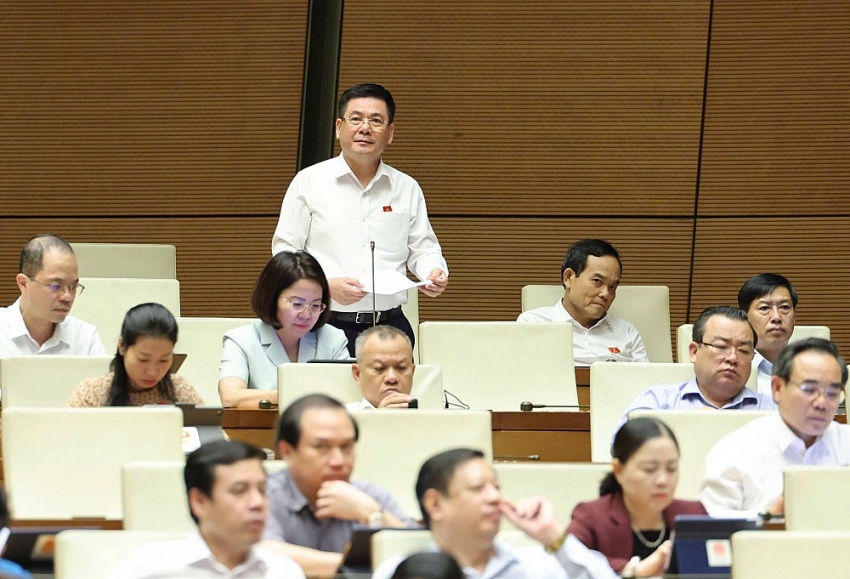INTERNATIONAL INVESTMENT
AND PORTAL
Vietnam is set to tighten oversight of livestream sales and digital advertising amid rising concern over counterfeit goods on e-commerce platforms, in a bid to protect consumer trust and ensure fair competition.

As Vietnam's digital commerce accelerates, concerns over counterfeit and substandard goods are casting a long shadow over consumer trust and market fairness. Speaking before the National Assembly (NA) on June 17, Minister of Industry and Trade Nguyen Hong Dien emphasised the urgent need to tighten control over livestream sales and advertising practices on e-commerce platforms to address the proliferation of fake and imitation products.
According to the minister, while authorities at all levels have exerted considerable efforts, the fight against counterfeit goods has grown more complex, especially in new digital formats such as online commerce and livestream sales. “Unlike traditional trade, these modern forms of commerce exploit sophisticated technologies and increasingly fragmented channels,” he noted. “We lack a clear legal framework and enforcement tools to regulate these emerging models.”
Minister Dien revealed that the Ministry of Industry and Trade (MoIT) is preparing to submit amendments to the Law on E-commerce for consideration in October. The proposed changes aim to establish an inter-agency coordination mechanism and clarify the responsibilities of ministries, local governments, and specialised regulatory bodies. “We must delineate accountability in managing commercial and advertising activities on e-commerce platforms, including livestreaming,” he stressed.
The upcoming legal reforms are expected to delegate greater oversight authority to provincial departments, allowing them to work in tandem with specialised inspection units to detect and penalise violations more effectively. Local regulators will be tasked with monitoring livestreaming content and identifying the misuse of digital platforms for selling counterfeit or poor-quality goods.
The move comes amid rising pressure from lawmakers and industry stakeholders to address the surge in fraudulent trade. Nguyen Hoang Bao Tran, vice president of Binh Duong Labour Federation, described the spread of counterfeit products and deceptive advertising as a direct threat to public health and the economy. “This is a matter of survival for the economy,” she asserted, calling for stricter control over advertising content, especially for goods with health implications.
A similar sense of urgency was echoed by Tran Thi Thanh Huong, the NA deputy for An Giang province, who highlighted farmers' growing anxiety over fake fertilisers and low-quality pesticides. According to the Vietnam Fertiliser Association, the agricultural sector incurs estimated losses of $2.5 billion annually due to such products, undermining yields, damaging value chains, and eroding consumer confidence.
In this context, the revised Law on E-commerce is seen as a legal update and a strategic tool to restore integrity in Vietnam’s fast-expanding digital marketplace. The law is expected to introduce specific provisions for livestream sales, a rapidly growing sector often used by micro and informal sellers. In the absence of clear seller identification, product origin verification, or advertising standards, consumers are frequently left vulnerable to manipulation and fraud.
Minister Dien acknowledged that high profit margins and limited deterrence remain key drivers behind the counterfeiting problem. He further pointed to weaknesses in enforcement: “Coordination among government bodies is fragmented, and some officials have even colluded with violators. Penalties are often too light to be a real deterrent.”
With digital platforms becoming the default retail environment for millions of Vietnamese consumers, experts believe that credibility, not just convenience, will define the next phase of e-commerce development. A robust legal framework, coupled with technological oversight and institutional accountability, could be the key to reversing the damage caused by counterfeit goods and restoring consumer trust in Vietnam’s digital economy.
By Nguyen Thu



















